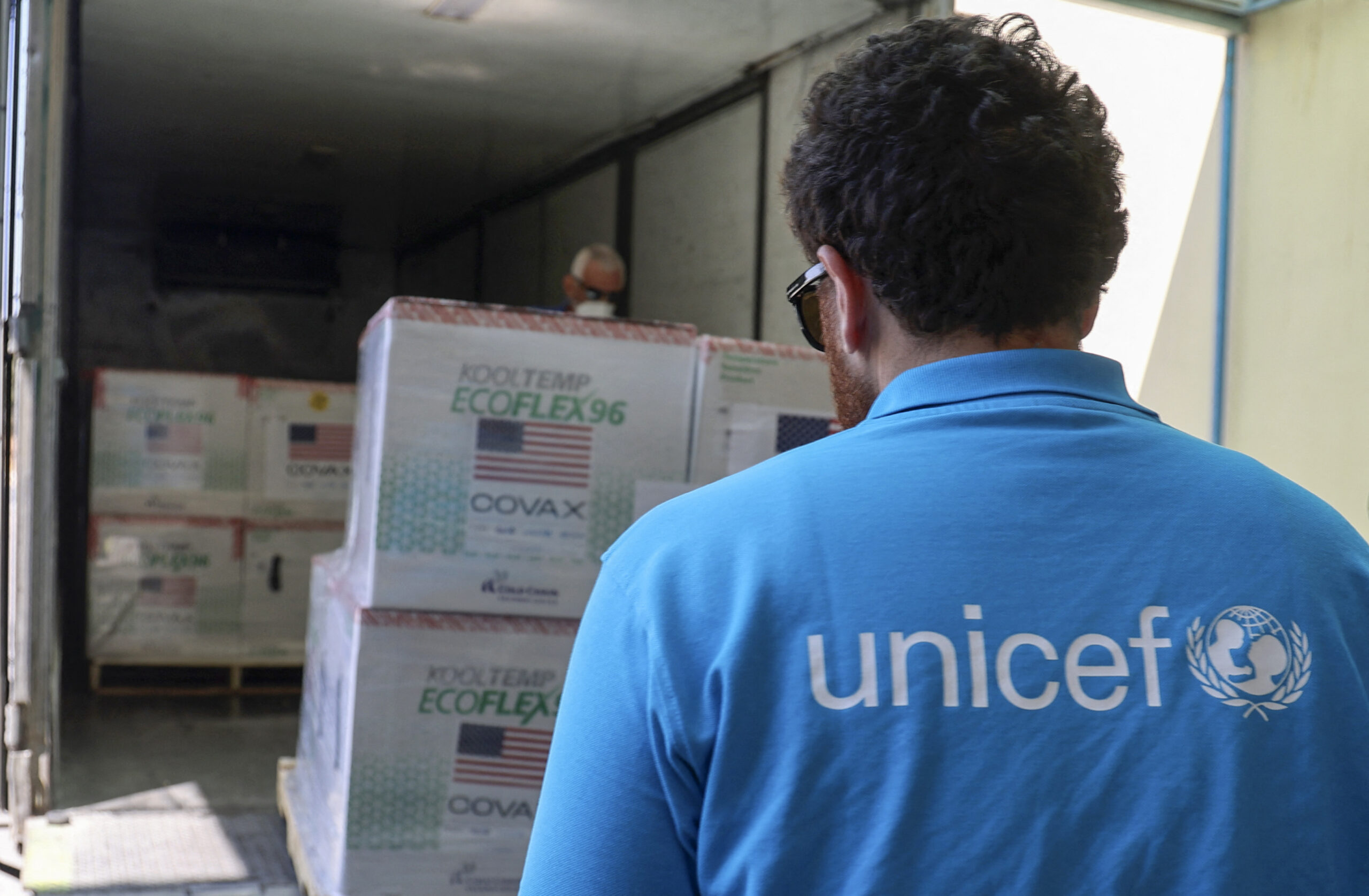
What if I told you there’s a preventative health measure that has saved more lives than almost any other medical intervention in history? That it’s rigorously tested and remarkably cost-effective? That sounds like it would be universally celebrated, right?
A few weeks ago, I found myself surrounded by 17 people who were deeply skeptical of this particular intervention—many of them passionately shared emotional stories as well as debunked or fringe rhetoric.
As you’ve probably guessed, I am talking about vaccines.
As a family physician, I joined this profession because I believe in harnessing the power of science to save lives, but science alone can’t finish the job. Today, two forces slow vaccine progress: limited access and viral misinformation.
JAAFAR ASHTIYEH/AFP via Getty Images
In early 2017, I came to a stark realization. The absence of qualified medical experts online created an easy opportunity for bad actors to mislead the public. I took action and began sharing evidence-based information on YouTube where I counter dangerous myths and misinformation to a now growing audience of 14 million subscribers.
But debunking myths is only half the battle; getting vaccine shots into arms matters just as much. That’s why I recently teamed up with UNICEF USA as their newest ambassador. UNICEF procures more vaccines than anyone on Earth—over 2 billion doses a year—shielding nearly half of the world’s children. Together, we’re working to make sure the other half gets the same shot at a healthy future.
A Dose of Good News
Let’s start with the facts: Vaccines save lives. A 2024 study published in The Lancet estimated that vaccines have saved 154 million lives over the past 50 years. That’s six people every minute, every day, for five decades. Vaccines don’t just prevent disease—they extend life, reduce suffering, and protect entire communities.
The victories speak for themselves. Take smallpox: a vicious virus that once claimed millions every year, now gone for good—officially erased in 1980 by the very tool some folks still doubt. Next up is polio. Wild poliovirus currently survives in only two countries—Afghanistan and Pakistan—where UNICEF’s vaccine efforts are closing in on complete eradication.
Measles tells a similar success story—global deaths have plummeted by more than 80 percent since 2000, all thanks to a simple two-dose vaccine. However, progress isn’t permanent. In February, a 6-year-old in Texas became the first U.S. measles fatality in decades after a cluster of cases spread through an under-vaccinated community. The loss is heartbreaking and a painful reminder that we must strive to keep immunity high or risk seeing once-defeated viruses make their return.
Two Big Barriers: Access and Misinformation
Vaccines only work if they reach the people who need them. That’s why I’m proud to be a UNICEF ambassador—because children everywhere deserve to be healthy, educated, protected, and respected. I am committed to supporting the organization’s important global work. Dedicated health care workers deliver vaccines in the world’s most remote locations, by boat, motorcycle, or even horseback. In places like Kyrgyzstan, UNICEF staff ride hours into remote villages to deliver measles vaccines. In the Democratic Republic of the Congo, health teams are delivering cutting-edge vaccines to children who remain vulnerable to diseases such as mpox.
The other vaccine challenge is communication. The internet has made it easier than ever to spread emotionally charged misinformation and pseudoscience. That’s exactly why I decided to sit down with 17 vaccine skeptics and why over 100 million people watched the video and its respective clips. Misinformation grabs clicks, but clear, respectful communication can still draw in the hesitant and undecided. It is important to listen to concerns with empathy, but it’s more important to respond with facts and science.
With my platform, I feel a responsibility to be a bridge between the public and the medical community to rebuild trust—especially for people who feel overlooked, unheard, or simply confused.
Science will continue to evolve, and we will always be learning. But for these vaccine-preventable illnesses, we know what works. We have the science. We just need to ensure that neither misinformation nor lack of access slows the incredible progress that vaccines have given us.
Every dose UNICEF and its partners deliver moves us closer to ending preventable disease and gives each child a fair shot at a full, healthy life, while every myth we dispel and question we answer strengthens the well-being and resilience of our entire community.
Doctor Mike (Dr. Mikhail Varshavski) is the world’s most-followed physician and a powerhouse voice for medical truth. UNICEF USA recently named him as its newest ambassador. Doctor Mike’s mission is to protect children’s health and dismantle dangerous medical myths to his audience of over 25 million global followers.
The views expressed in this article are the writer’s own.
